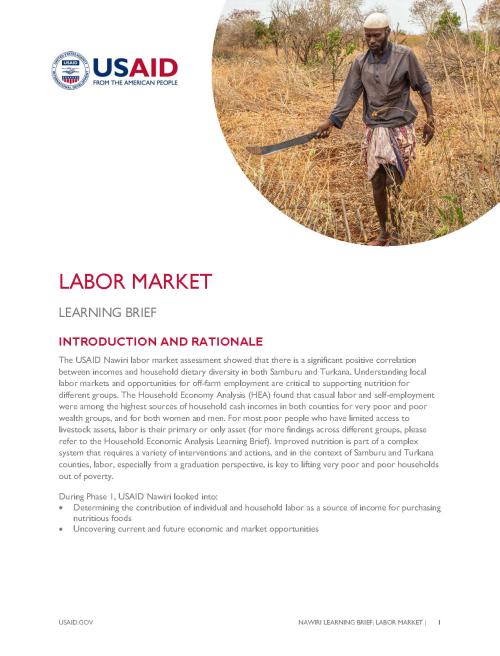Through a labor market assessment, USAID Nawiri explored constraints and opportunities for livelihoods, entry points for interventions, and the potential effect on nutrition outcomes. The assessment showed a significant positive relationship between income and household dietary diversity, and this brief recommends types of off-farm livelihoods the program can support. Approaches must be built on mixed livelihoods to support a balanced household economy that allows production and purchase of nutritious foods and diverse diets, as well as access to other goods and services critical to nutrition security. Livelihood strategies must consider seasonality, including migration patterns, as people rotate between income sources throughout the year. Formal and informal arrangements to keep children and mothers together are necessary to support livelihood opportunities for breastfeeding mothers. Lastly, barriers to working with formal training institutions range from few institutions concentrated in urban areas that lack boarding facilities and childcare services; unaffordable fees; mismatch between the courses offered and the skills demanded in the labor market; inadequate tools and equipment; and low school-to-work transition for those who have gone through the formal training system.
Learning Brief
Full Report(s)
